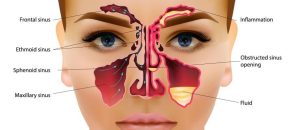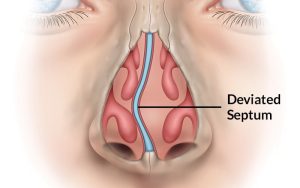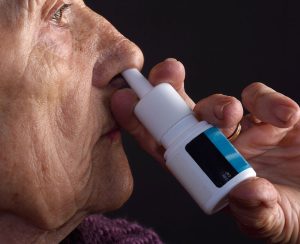 Relief for nasal congestion. Home remedies for nasal congestion include using warm compresses, steam inhalation, and drinking lots of water to keep mucus draining and thin. For allergy-related congestion, over-the-counter remedies include saline nasal sprays, decongestants, and antihistamines; however, decongestants should be used carefully to prevent rebound congestion and elevated blood pressure. A doctor may prescribe nasal sprays, medicines for bacterial infections, or corrective surgery as extra therapies for chronic problems
Relief for nasal congestion. Home remedies for nasal congestion include using warm compresses, steam inhalation, and drinking lots of water to keep mucus draining and thin. For allergy-related congestion, over-the-counter remedies include saline nasal sprays, decongestants, and antihistamines; however, decongestants should be used carefully to prevent rebound congestion and elevated blood pressure. A doctor may prescribe nasal sprays, medicines for bacterial infections, or corrective surgery as extra therapies for chronic problems
RELIEF FOR NASAL CONGESTION
Excess fluid causes the nasal tissues and blood vessels to swell, resulting in nasal congestion, also referred to as a stuffy nose. Breathing, sleeping, and everyday activities can all be hampered by this painful condition. Effective management of nasal congestion can be achieved by being aware of its causes, symptoms, and alleviation techniques.
Causes of Nasal Congestion
Nasal congestion can be caused by a variety of factors, including:
1. Infections:

Viral infections such as the common cold, influenza, and sinus infections are frequent culprits. Bacterial infections can also lead to congestion.
2. Allergies:
Allergic reactions to pollen, dust mites, pet dander, and other allergens can cause nasal passages to swell and produce excess mucus.
3. Environmental Irritants:
Exposure to smoke, pollution, strong odors, or chemicals can irritate the nasal lining and lead to congestion.
4. Structural Issues:

Deviated septum, nasal polyps, and enlarged adenoids can block nasal passages and cause chronic congestion.
5. Non-Allergic Rhinitis:
Changes in weather, certain foods, or hormonal changes (e.g., during pregnancy) can trigger nasal congestion without an allergic reaction.
Symptoms of Nasal Congestion;

In addition to a stuffy nose, nasal’s congestion may present with other symptoms, such as:
– Runny Nose: Excess mucus drainage, which can be clear or colored.
– Sinus Pressure: A feeling of pressure around the eyes, cheeks, and forehead.
– Postnasal Drip: Mucus dripping down the back of the throat, causing a sore throat or cough.
– Reduced Sense of Smell and Taste: Difficulty in detecting smells and tasting food.
– Headache: Pressure and pain in the head due to blocked sinuses.
Relief Methods for Nasal Congestion;
Managing nasal’s congestion involves alleviating symptoms and addressing the underlying cause. Common relief methods include:
1. Medications:

Relief for nasal congestion
– Decongestants:
Over-the-counter (OTC) nasal sprays or oral decongestants can reduce swelling in nasal passages (e.g., pseudoephedrine, oxymetazoline).
– Antihistamines:
OTC antihistamines can relieve congestion caused by allergies (e.g., loratadine, cetirizine).
– Nasal Corticosteroids:

Relief for nasal congestion
Prescription nasal sprays can reduce inflammation in chronic conditions (e.g., fluticasone, mometasone).
2. Home Remedies:

Relief for nasal congestion
– Steam Inhalation: Inhaling steam from hot water can help moisten and clear nasal passages.
– Saline Nasal Spray: Saline sprays or rinses can help clear mucus and hydrate nasal tissues.
– Hydration: Drinking plenty of fluids helps thin mucus, making it easier to expel.
– Humidifiers: Using a humidifier adds moisture to the air, which can soothe irritated nasal passages.
3. Lifestyle Adjustments:
– Avoiding Irritants: Reducing exposure to smoke, allergens, and strong odors.
– Elevating the Head: Sleeping with the head elevated can help reduce congestion.
When to Seek Medical Attention;

Relief for nasal congestion
While nasal’s congestion is often a minor issue, medical attention is necessary if:
– The congestion lasts longer than 10 days.
• There is severe pain or swelling in the face or eyes.
– When there are symptoms of a severe infection, such as high fever, green or yellow nasal discharge, or a persistent headache.
– There is difficulty breathing or symptoms of sleep apnea.
Summary
There are several explanations for the common ailment known as nasal congestion. People can control their symptoms and seek the right medical attention as needed if they are aware of its causes and efficient symptom-relieving techniques.